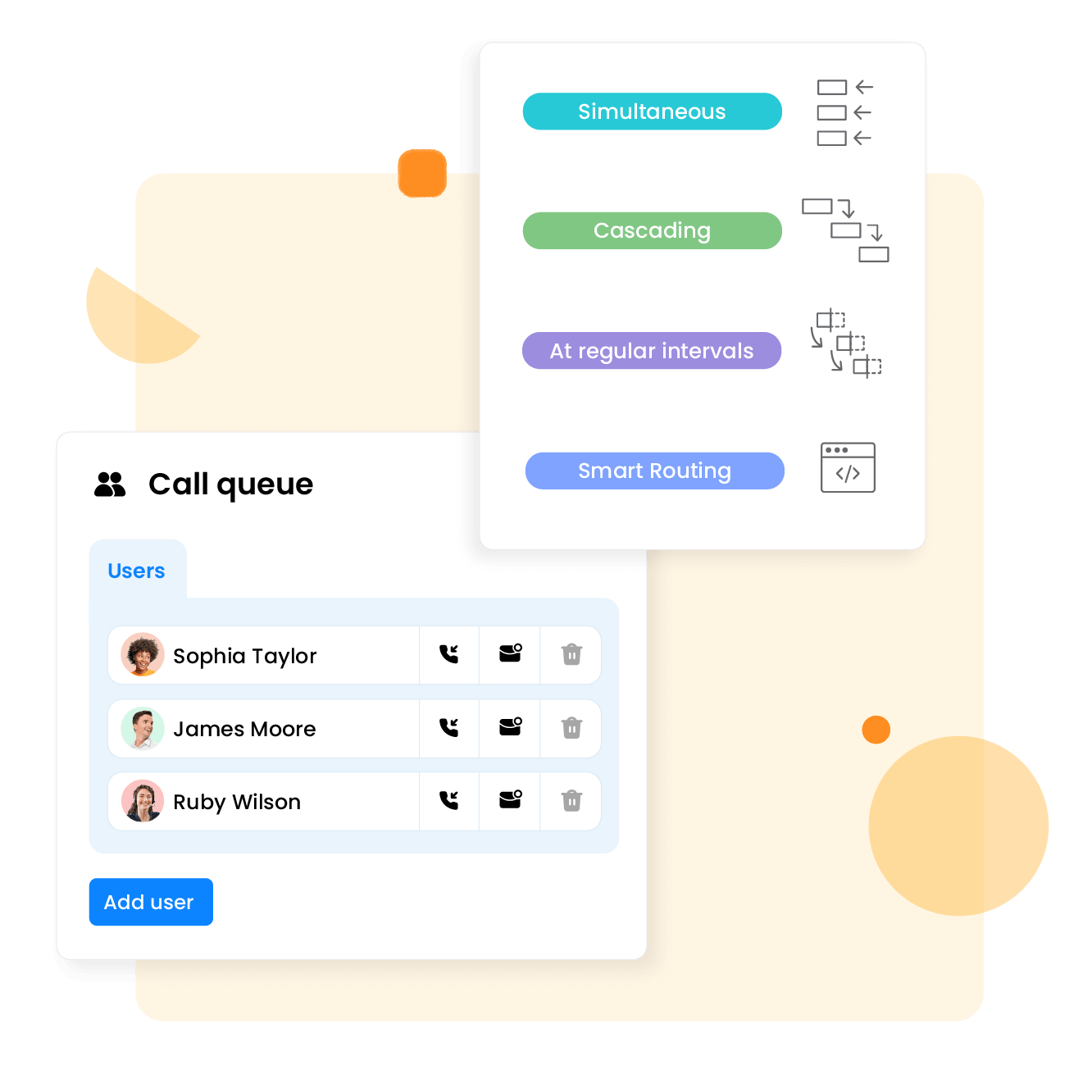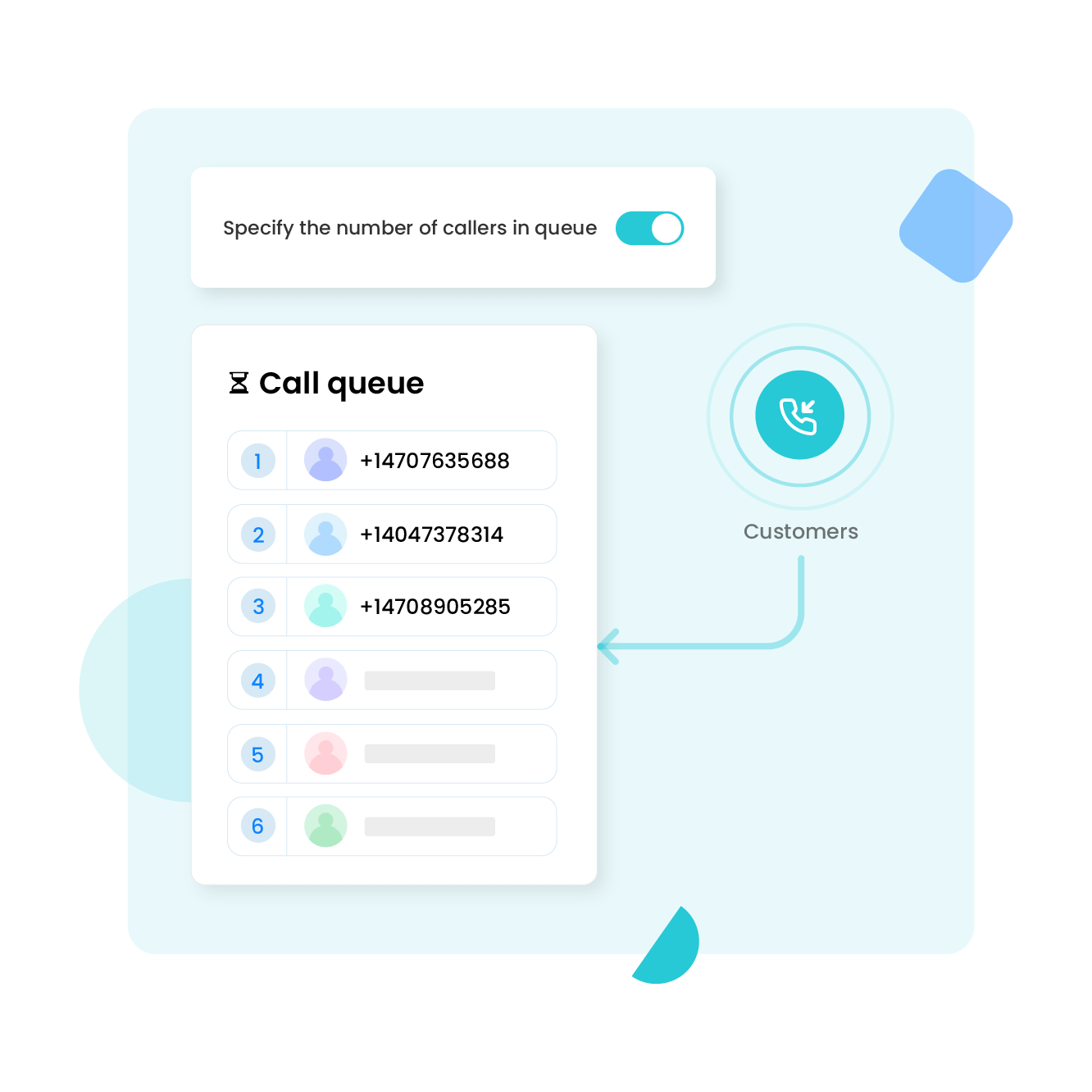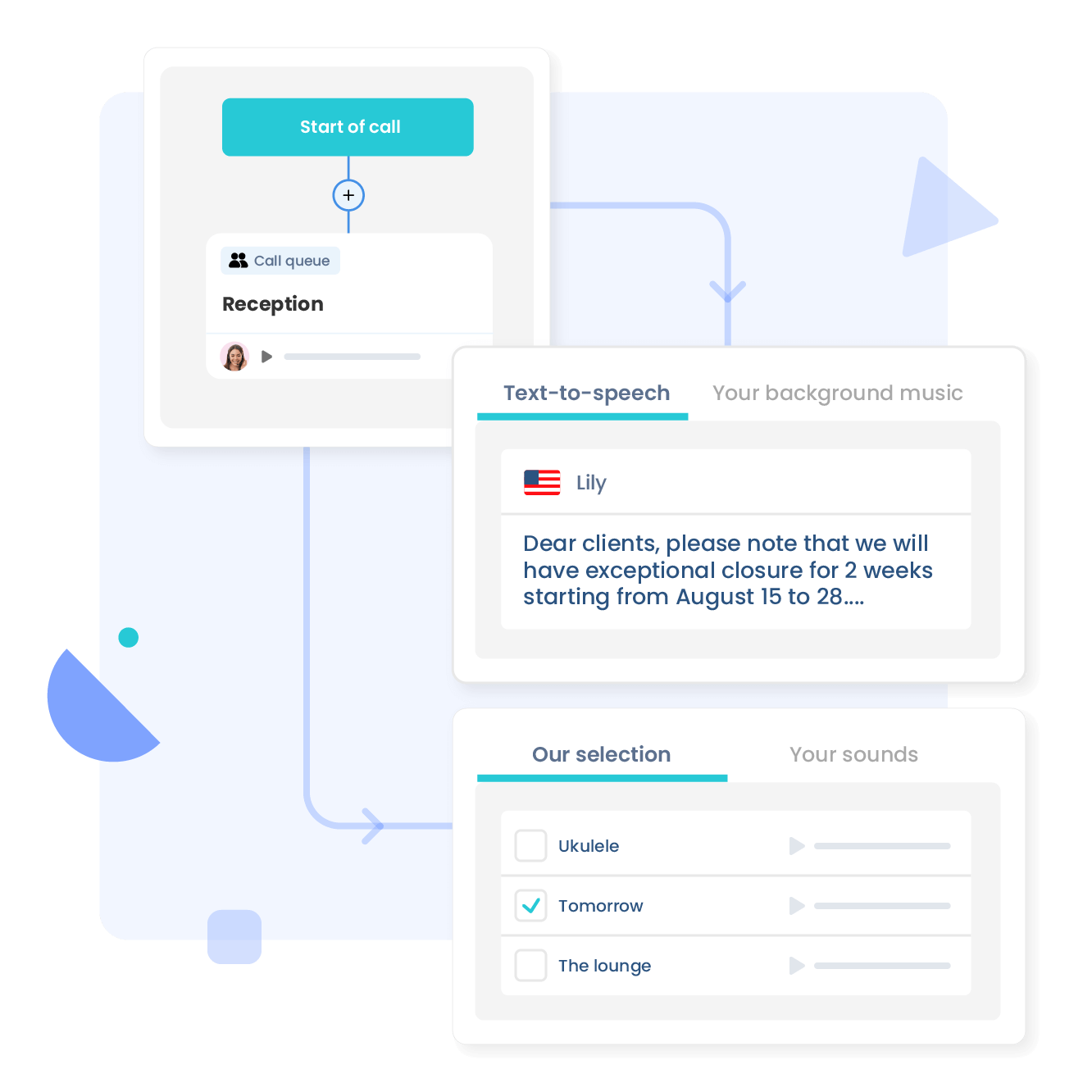Call Queue Software
Customize call queues by limiting the duration and number of calls according to your needs, and let your callers know their position in the queue in real time.
What is call queuing?
Call queuing is a VoIP technology that places inbound callers into one or more virtual queues. With this technology, your company will minimize calling wait times and make sure your incoming callers are directed to the right person smoothly and efficiently. When you handle incoming call traffic well, your sales increase, your customer loyalty grows, and you ultimately strengthen brand awareness. Given these benefits, incorporating call queuing is a great way to improve your business strategy.
Define rules for your call queue
From maximum wait time to maximum number of calls in queue, personalize call queue rules at your convenience.

Let callers know their position in the queue
Indicate to your callers how many other persons are ahead of them in the queue and what their exact position is.

Reassure your clients and prospects from the start
Avoid overloaded call queues and save your callers some time. Reassure them of your service quality as quickly as possible.

FAQs on Call Queues
- When should a call queue be personalized?
- What is call queue management?
- How does a phone queue work?
- What are the different types of call queue?
- What is the difference between a ring group and a call queue?
- What is the difference between call queue and auto attendant?
- Why should you use call queues?
When should a call queue be personalized?
Once you’ve reached a certain number of incoming calls, it’s important to limit wait time for your callers and inform them of their place in the queue. Nothing is more frustrating than waiting endlessly on hold without any indication of whether you’ll actually get to speak to a human being. Ensure this doesn’t happen to your clients or prospects!
What is call queue management?
Call queue management is a function included in a business phone system that organizes the assignment of inbound calls to agents. When a call comes in, the caller will either be connected directly to a representative or placed on hold and put in the call queue, a virtual line of callers waiting to speak to representatives. If put on hold, the caller will wait in the call queue behind other callers until a representative is available.
How does a phone queue work?
The phone queue is a virtual line where customers wait to be connected to an available customer service agent. When a caller contacts a business, they’ll only be connected to an agent if there is no other caller in the call queue. If there are other callers waiting to be connected to an agent, the caller will be put on hold and join the call queue. While in the call queue, the caller will be put on hold, and may hear an automated voice message updating them on the expected wait time.
What are the different types of call queue?
There are five types of call queues in business phone systems.
Round robin
The round robin call queue sends the caller to the agent who has been idle the longest. That’s why this type of call queue is also known as longest idle.Ring all
In ring all phone queues, an incoming call is routed to all available agents simultaneously.Linear hunt
In the linear hunt phone queue, the call goes to available agents in a predefined order, which can be chosen when agents are marked as available in the business phone system.Linear cascade
In this type of phone queue, the calls go to groups of agents in a predefined order. The order of the groups of agents can be chosen when agents are designed as available in the business VoIP software.Call park
In this type of queue, the caller is put on hold until an agent picks up the call.
What is the difference between a ring group and a call queue?
In a ring group, a group of phones rings simultaneously when the phone number is called. The phone call doesn’t go to one person or phone in particular, and will be responded to by whoever picks up the phone first. A call queue group is a group of available agents who receive incoming calls. The incoming calls will go to the available members of that call queue group, not to all the phones in the group.
What is the difference between call queue and auto attendant?
The difference between call queue and auto attendant is whether or not the caller inputs information into a menu. In a call queue, the caller is directed to an available agent without any input on the caller’s part. With auto attendant, the caller inputs information, and based on that information, they are directed to a specific call queue.
Why should you use call queues?
Call queues enable you to organize incoming calls, answer them in a timely manner, and thus provide a quality level of customer service. Here are five of the specific benefits call queues bring to businesses.
- Increases customer satisfaction by decreasing hold time.
- Fair and efficient workload distribution for the team.
- Ensures all calls are answered in as timely a manner as possible .
- Lowers call handle time because callers are directed to the best agent for their issue.
- Increase employee productivity and satisfaction.